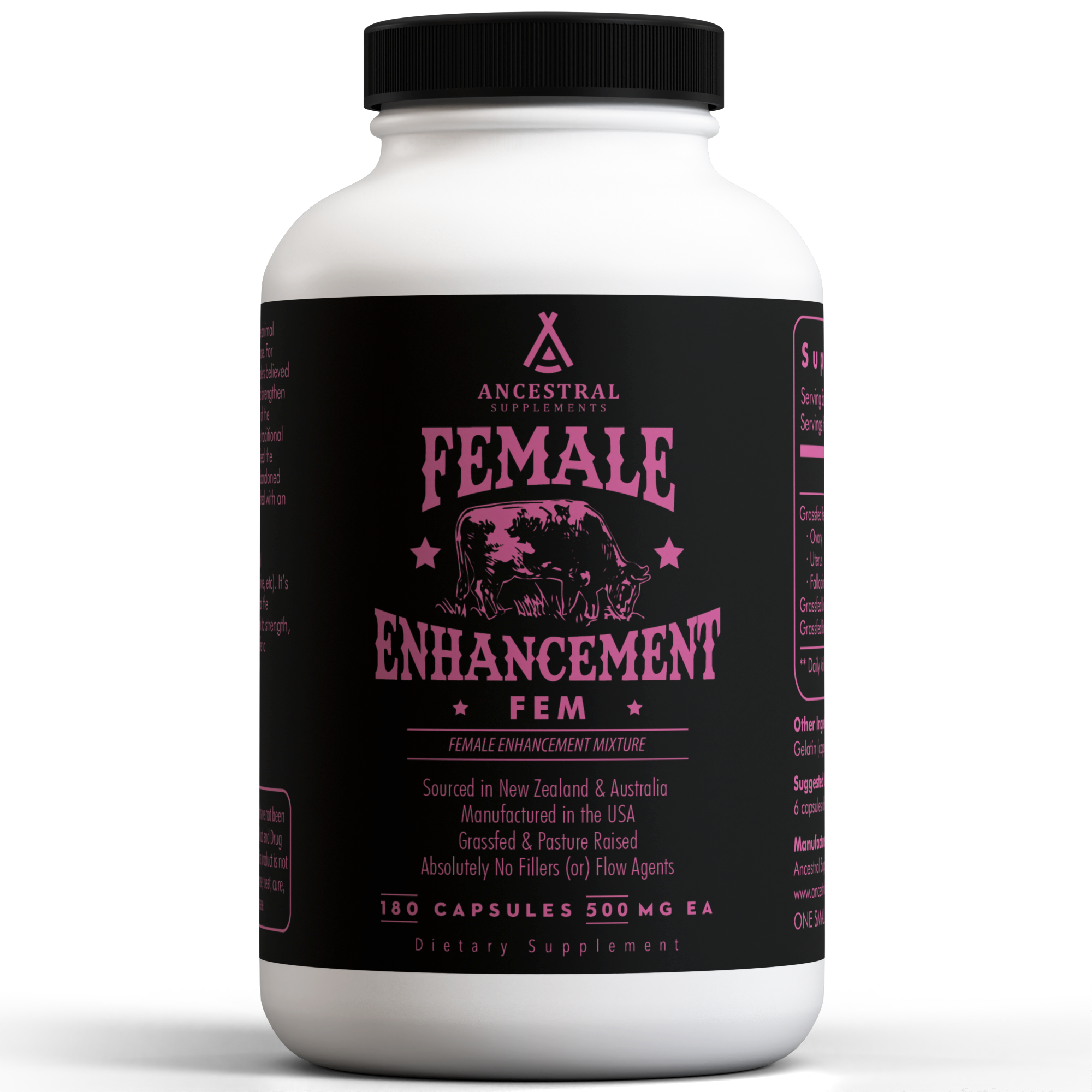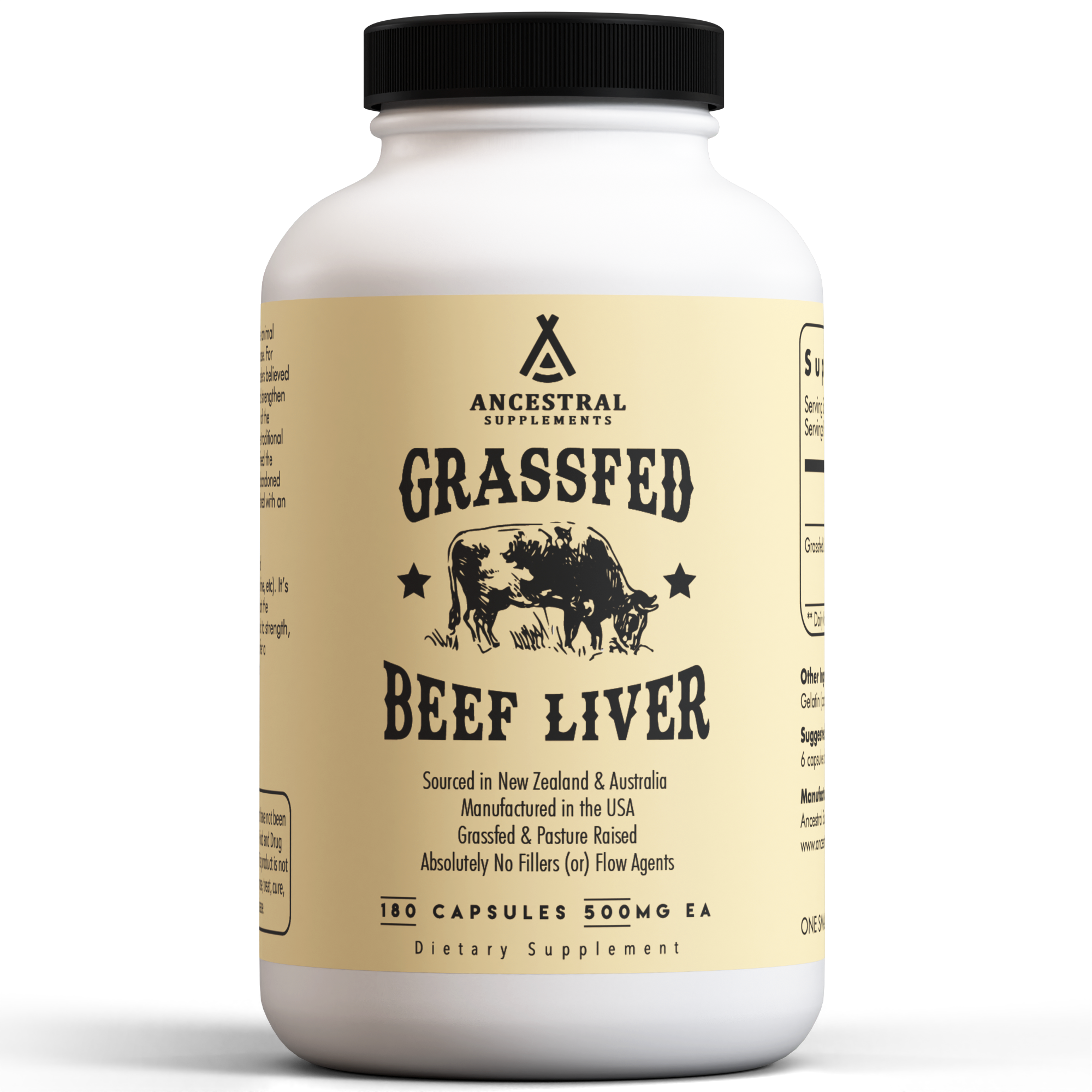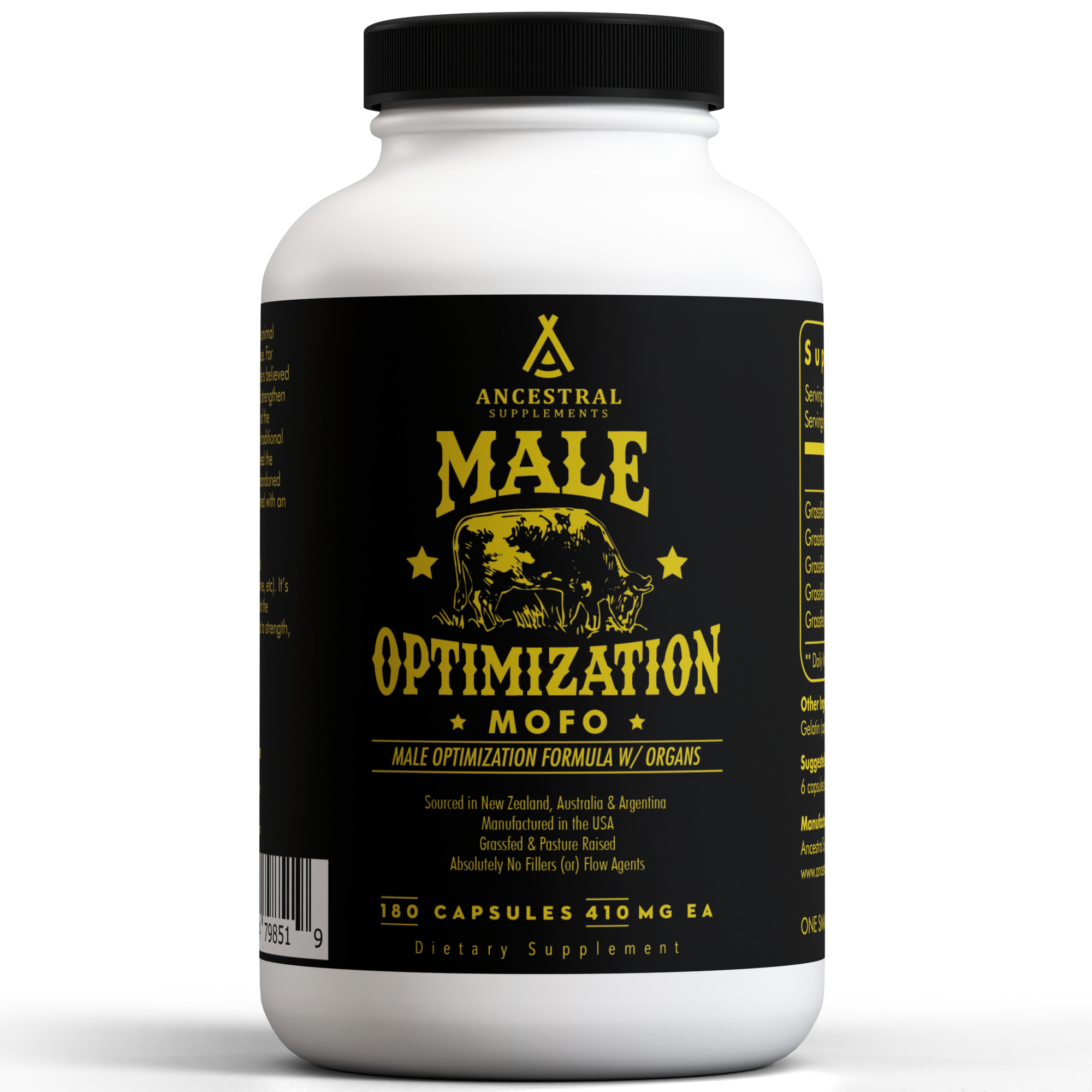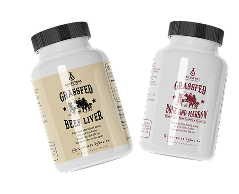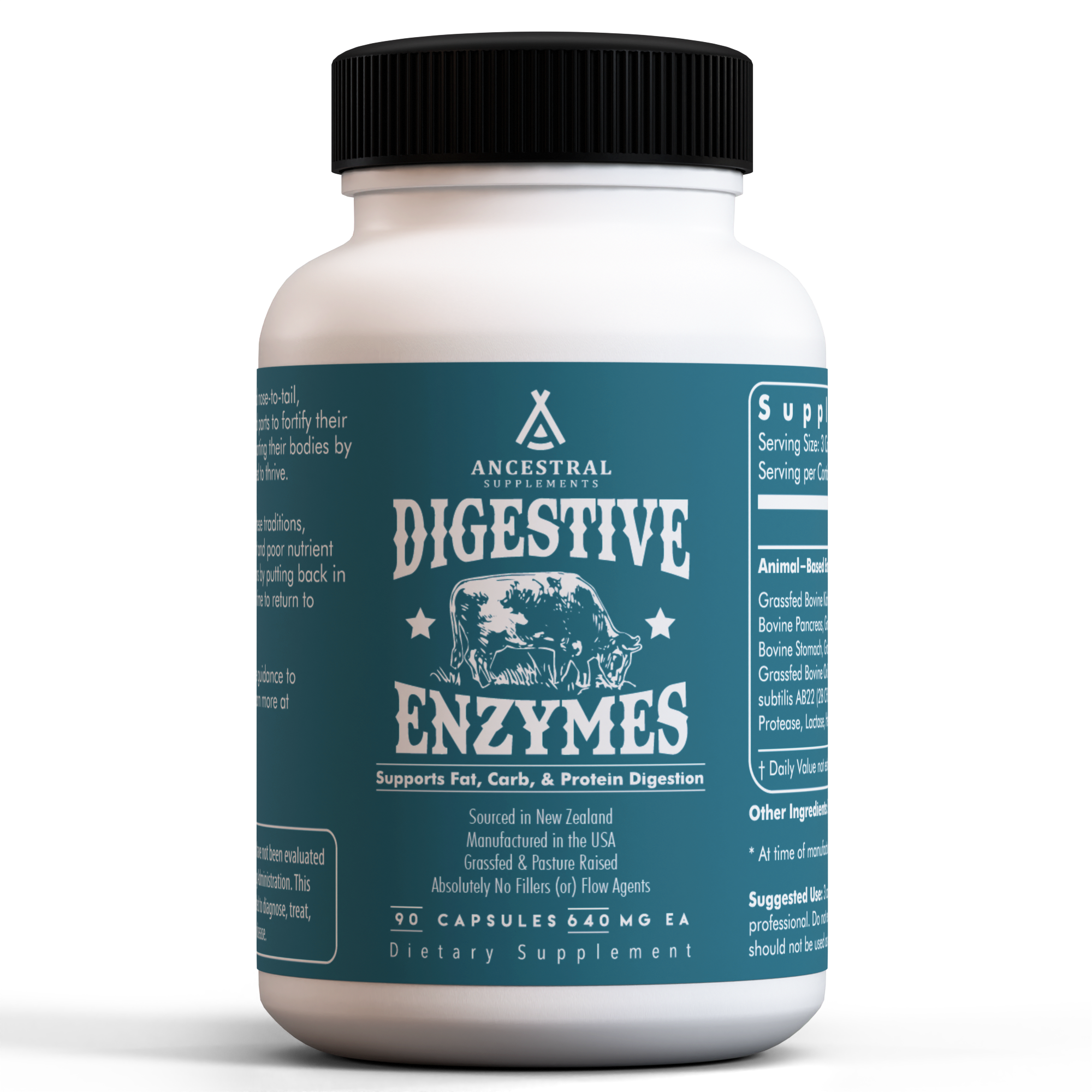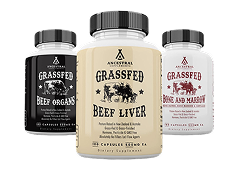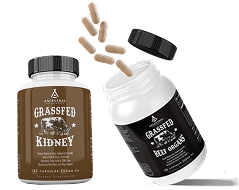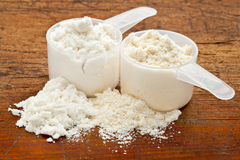11 Beef Spleen Benefits: How This Overlooked Organ Meat Can Boost Your Health

You’ve probably heard about the benefits of organ meats (also called offal) like chicken or beef liver, beef heart, and kidneys—but what about spleen?
Beef spleen is quickly gaining recognition as one of the most underrated organ meats you can eat. If you’re interested in naturally boosting your immune system with the help of essential nutrients like iron, zinc, and vitamin A, while also trying a more nose-to-tail (or ancestral) approach to eating, beef spleen is worth adding to your diet.
In this article, we’ll break down what beef spleen is, its nutritional profile, its key health benefits, and how to get it into your diet. You'll even learn how to reap the benefits of beef spleen without needing to shop at a butcher or learn how to cook organ meat.
What Is Beef Spleen?
The spleen is a soft, fist-sized organ located in the upper left part of the abdomen, near the stomach.
In both humans and cattle, the spleen is crucial for maintaining immune defenses due to how it filters the blood, identifies harmful pathogens, and produces white blood cells. It also helps recycle old or damaged red blood cells and stores platelets and iron for future use. Because of these essential functions, the spleen is sometimes referred to as both an immune and a blood maintenance organ.
Beef spleen is densely packed with bioavailable nutrients, including some that are common nutrient deficiencies. When consumed as food or in dried supplement form, beef spleen offers unique peptides, minerals, and proteins that mirror the organ’s natural role in the body.
For example, according to Traditional Chinese Medicine and ancestral dietary wisdom's "like supports like" principle, eating spleen supports your own spleen's health.
Beef Spleen Nutrition
Like other nutritious beef organ meats, beef spleen provides more vitamins and minerals per calorie than "muscle meats" (such as regular ground beef). Here's a breakdown of its nutritional highlights:
1. Protein
Beef spleen contains approximately 16 grams of protein per 3-ounce serving, making it a great option for those looking to increase protein intake with minimal fat or carbohydrates. It also includes peptides and enzymes that help support immune function and tissue repair.
2. Carbohydrates
Beef spleen is very low in carbohydrates, containing 0 carbs or up to 2–3 grams per serving, depending on preparation (such as if flour is added). This makes it compatible with the keto diet, carnivore diet (or ketovore diet), and other low-carb eating plans.
In terms of fat content, it's relatively low, with about 2.5 grams of total fat per 3 ounces.
3. Vitamins
Almost all organ meats are high in bioavailable vitamins, especially B vitamins. Beef spleen contains:
-
Vitamin B12: Spleen has over 200% of the B12 you need each day, which supports red blood cell formation, energy metabolism, and nervous system health.
-
Vitamin C: Unusual for red meat, spleen contains a decent amount of vitamin C, which acts as an antioxidant and supports immune defenses. Each serving contains about 43% of your daily vitamin C needs, which not only helps to support your immune system but also assists in collagen production and tissue maintenance.
-
Niacin (B3): Another B vitamin found in beef spleen is B3 (45% per serving), which is key for converting food to energy.
-
Riboflavin (B2): Spleen provides 23% of adults' daily B2 needs, helping to support energy metabolism and skin health.
-
Pantothenic Acid (B5): B5 is also found in beef spleen, providing about 19% of your daily value, which can help in the production of hormones and neurotransmitters.
4. Minerals
Along with protein, enzymes, and vitamins, beef spleen is impressively rich in minerals, many of which are needed for immune health, energy production, and cellular repair. Just one 3-ounce serving offers:
-
Iron: Spleen is one of the most potent natural sources of heme iron, delivering over 200% of the recommended daily intake. Heme iron is the most easily absorbed form—even more so than iron from plants—and is essential for transporting oxygen and producing energy.
-
Zinc: This immune-boosting mineral supports hormone production and DNA synthesis. Beef spleen provides 16% of your daily needs in a single serving.
-
Selenium: Selenium acts like a powerful antioxidant that helps protect cells from oxidative stress, supports thyroid hormone conversion, and contributes to healthy detoxification. Spleen offers nearly 100% of the daily recommended amount.
-
Copper: Plays a vital role in cardiovascular health, iron metabolism, and the formation of connective tissue. One serving of beef spleen contains about 17% of your daily copper needs.
-
Phosphorus: This mineral is a building block for bones and teeth, and a key player in ATP (your body’s energy currency). Each serving provides about 20% of your daily intake.
-
Potassium: As an electrolyte, potassium helps regulate fluid balance, muscle contractions, and nerve signals. Beef spleen provides around 8% of your daily value.
-
Magnesium: Magnesium is involved in over 300 enzymatic reactions, including muscle and nerve function, energy production, and bone health. A 3-ounce serving offers 4–5% of your daily requirement.
|
Nutrient |
Amount (3 oz) |
% Daily Value |
Why It Matters |
|
Calories |
~89 kcal |
— |
Low-calorie, nutrient-dense organ meat. |
|
Protein |
15.6 g |
31% |
Helps build muscle, enzymes, immune cells. |
|
Fat (Total) |
2.55 g |
3% |
Low-fat protein source. |
|
Saturated Fat |
0.84 g |
4% |
Minimal impact on cholesterol. |
|
Iron |
37.89 mg |
210% |
Supports oxygen transport and energy. |
|
Magnesium |
18.72 mg |
4.5% |
Needed for nerve, muscle, and enzyme function. |
|
Phosphorus |
251.8 mg |
20% |
Helps with bone strength and ATP production. |
|
Potassium |
364.9 mg |
8% |
Supports muscle contraction and heart health. |
|
Sodium |
72.3 mg |
3% |
Naturally low sodium content. |
|
Zinc |
1.8 mg |
16% |
Aids immune system health and hormone production. |
|
Copper |
0.15 mg |
17% |
Supports iron metabolism and energy production. |
|
Manganese |
0.06 mg |
3% |
Involved in bone health and antioxidant defense. |
|
Selenium |
52.9 mcg |
96% |
Powerful antioxidant and thyroid cofactor. |
|
Vitamin C |
38.7 mg |
43% |
Boosts immunity and collagen production. |
|
Riboflavin (B2) |
0.3 mg |
23% |
Supports energy metabolism and skin health. |
|
Niacin (B3) |
7.14 mg |
45% |
Essential for converting food to energy. |
|
Pantothenic Acid (B5) |
0.93 mg |
19% |
Helps make hormones and neurotransmitters. |
|
Vitamin B-6 |
0.06 mg |
4% |
Assists with neurotransmitter synthesis. |
|
Folate (DFE) |
3.4 mcg |
<1% |
Needed for red blood cell formation and DNA synthesis. |
|
Vitamin B-12 |
4.83 mcg |
201% |
Vital for brain health, energy, and red blood cells. |
|
Cholesterol |
223.7 mg |
75% |
High in cholesterol, but this may not impact heart health for most people. |
11 Best Beef Spleen Benefits for Your Diet
As you can tell, eating beef spleen or supplementing with desiccated spleen capsules can offer a wide range of unique health benefits, many of which are due to its rich supply of heme iron, B vitamins, and organ-specific peptides. Below are the most well-documented benefits and how they work in the body.
1. Supports Immune System Function
The spleen’s primary function in the body is immune surveillance, due to how it filters pathogens from the blood and houses key immune cells like macrophages and lymphocytes.
When you consume beef spleen, you’re getting spleen-derived peptides (like tuftsin and splenopentin) that have been shown to help modulate immune responses. Tuftsin, for instance, boosts phagocytic activity in white blood cells, which can help boost the body's defenses.
2. Excellent Source of Heme Iron
Beef spleen contains some of the highest levels of heme iron found in any food, with over 200% of the daily value in a 3-ounce serving.
Heme iron is far more bioavailable than non-heme (plant-based) iron, which makes it particularly effective for women of reproductive age and endurance athletes.
Many studies have confirmed that heme iron from meat and animal products is absorbed much better than non-heme iron and is usually beneficial in helping people maintain healthy iron levels. This is one reason it's worth reconsidering avoiding red meat, if you currently do.
3. Promotes Red Blood Cell Production
The spleen is responsible for filtering and recycling red blood cells, and eating spleen may support this same process in your own body. It’s packed with B12, folate, and iron, all of which are essential for erythropoiesis (red blood cell formation).
These nutrients also support metabolic processes, including the transport of oxygen throughout your body, which is crucial for preventing fatigue and supporting energy, focus, and physical performance.
4. May Enhance Energy and Reduce Fatigue
Low energy is often rooted in micronutrient deficiencies, especially B12 and iron (particularly in people who don't eat red meat or a variety of quality animal products). Beef spleen delivers both in abundance, helping to support ATP production at the cellular level, making it one of the best supplements for energy.
Research shows that restoring iron levels (especially in women) with low ferritin improves fatigue scores. Regular intake can also support mitochondrial function, endurance, and mental clarity.
5. Supports Detoxification
The antioxidant selenium—which beef spleen provides nearly 100% of your DV in one serving—is a major player in supporting detoxification pathways. It supports glutathione peroxidase activity, which helps neutralize free radicals and reduce oxidative stress.
Spleen peptides may also support immune-regulated detox pathways. This makes beef spleen a unique ally in helping protect your body from heavy metals, environmental toxins, and stress.
6. Supports Skin Health
Beef spleen contains vitamin C, zinc, protein, and copper, all vital nutrients for skin care, collagen production, and tissue regeneration. These nutrients also support healthy skin cell turnover and may help minimize breakouts or irritation.
7. Supports Spleen Health (Organotherapy)
In TCM and organotherapy, there’s a longstanding principle: “like supports like.” Ingesting spleen tissue is believed to help nourish your own spleen.
While not widely studied in the West, this approach has been used for centuries, and modern supplements like Ancestral’s Grass Fed Beef Spleen are based on this therapeutic principle.
8. May Improve Athletic Recovery
Athletes lose iron through sweat and red blood cell breakdown. The protein, heme iron, zinc, and B vitamins in beef spleen can all help repair muscle and other tissues, boost energy levels, and support post-workout recovery.
A 2025 review in Sports Medicine demonstrated the importance of these nutrients (along with some others like omega-3s and CLA) in managing inflammation, helping with tissue repair, and supporting muscle recovery. For those pushing their physical limits, beef spleen may offer an edge in terms of strength, stamina, and recovery.
9. Helps Maintain Healthy Hormones
Zinc and selenium are two key minerals for hormone production, particularly for testosterone, estrogen, and thyroid hormones like T3.
Zinc supports the conversion of testosterone and DHEA, while selenium helps in converting T4 to the more active thyroid hormone T3. Deficiencies in these can contribute to mood imbalances, weight gain, or reproductive issues, especially in women and older adults.
10. Promotes Cognitive Function
Iron, B12, and folate are involved in neurotransmitter synthesis, myelin formation, and oxygen delivery to the brain. Beef spleen helps replenish these brain-boosting nutrients, which can aid in overall cognitive and mental health.
11. Provides Unique Peptides & Enzymes
Beef spleen isn’t just about vitamins and minerals. It also delivers spleen-specific peptides like tuftsin and splenopentin.
These bioactive compounds appear to regulate immune function and inflammation levels. While research is still emerging, early studies suggest that these peptides may support immune modulation in ways standard nutrients cannot.
What’s the Best Way to Take Beef Spleen?
Let’s be honest: cooking beef spleen can be a tough sell. The taste is strong, the texture can be chewy, and sourcing clean, pasture-raised spleen is difficult for most people.
Fortunately, you don’t need to prepare it yourself to enjoy the benefits.
Beef spleen supplements provide a convenient, tasteless way to get the nutrients of raw or cooked spleen, without having to stomach the organ itself. Look for products that are:
-
Grass-fed and pasture-raised
-
Freeze-dried to preserve nutrients
-
Third-party tested for quality
-
Free from additives or fillers
How to Easily Add Beef Spleen Supplements to Your Diet Today
If you’re curious about the benefits of eating spleen but aren’t ready to fire up a cast-iron pan, a quality supplement is your best bet.
Ancestral’s Grass Fed Beef Spleen supplement delivers all the goodness of this organ—iron, B12, immune peptides, and more, in a clean, easy-to-take capsule.
-
Each serving contains freeze-dried spleen from grass-fed, pasture-raised cattle
-
No fillers, no additives, just real, nutrient-rich organ meat
-
It's backed by third-party testing and formulated according to ancestral principles
Key Takeaways: Why Beef Spleen Deserves a Spot in Your Routine
-
Beef spleen is a nutritional powerhouse with over 200% of your daily iron and B12 needs in just one 3-ounce serving.
-
It supports more than just energy. Beef spleen contributes to immune defense, red blood cell production, detoxification, hormone balance, and even cognitive performance, thanks to its unique mix of heme iron, B vitamins, and peptides like tuftsin.
-
It’s especially beneficial for those with increased nutrient needs. Women of reproductive age, athletes, people looking to boost iron, and those following low-carb diets may all benefit from the iron, zinc, and B12 spleen provides.
-
You don’t need to cook spleen to get its benefits. Grass-fed, desiccated beef spleen supplements—like those from Ancestral Supplements—offer a clean, convenient way to get all the health benefits without having to prepare or eat the organ itself.

